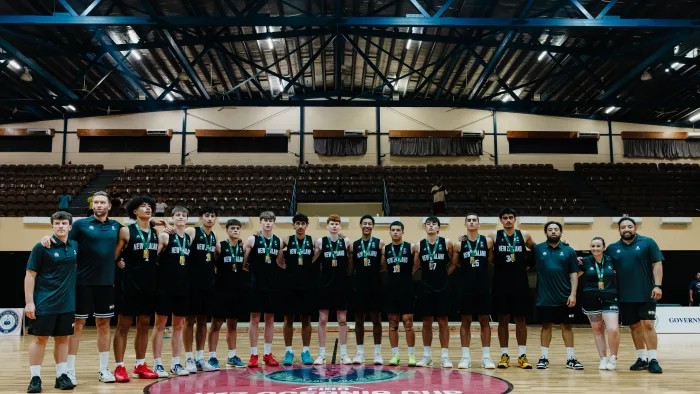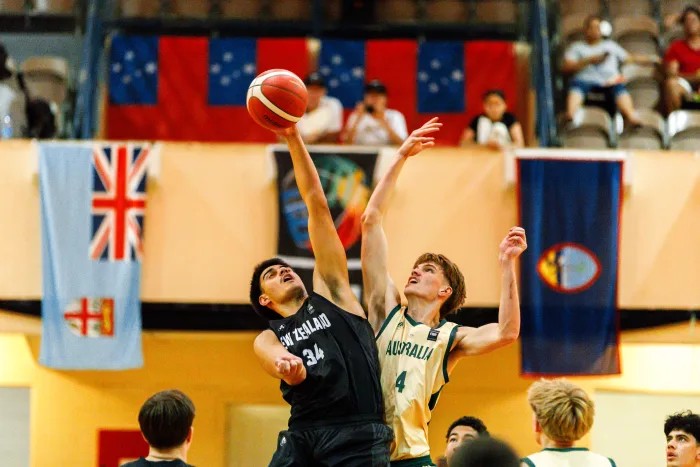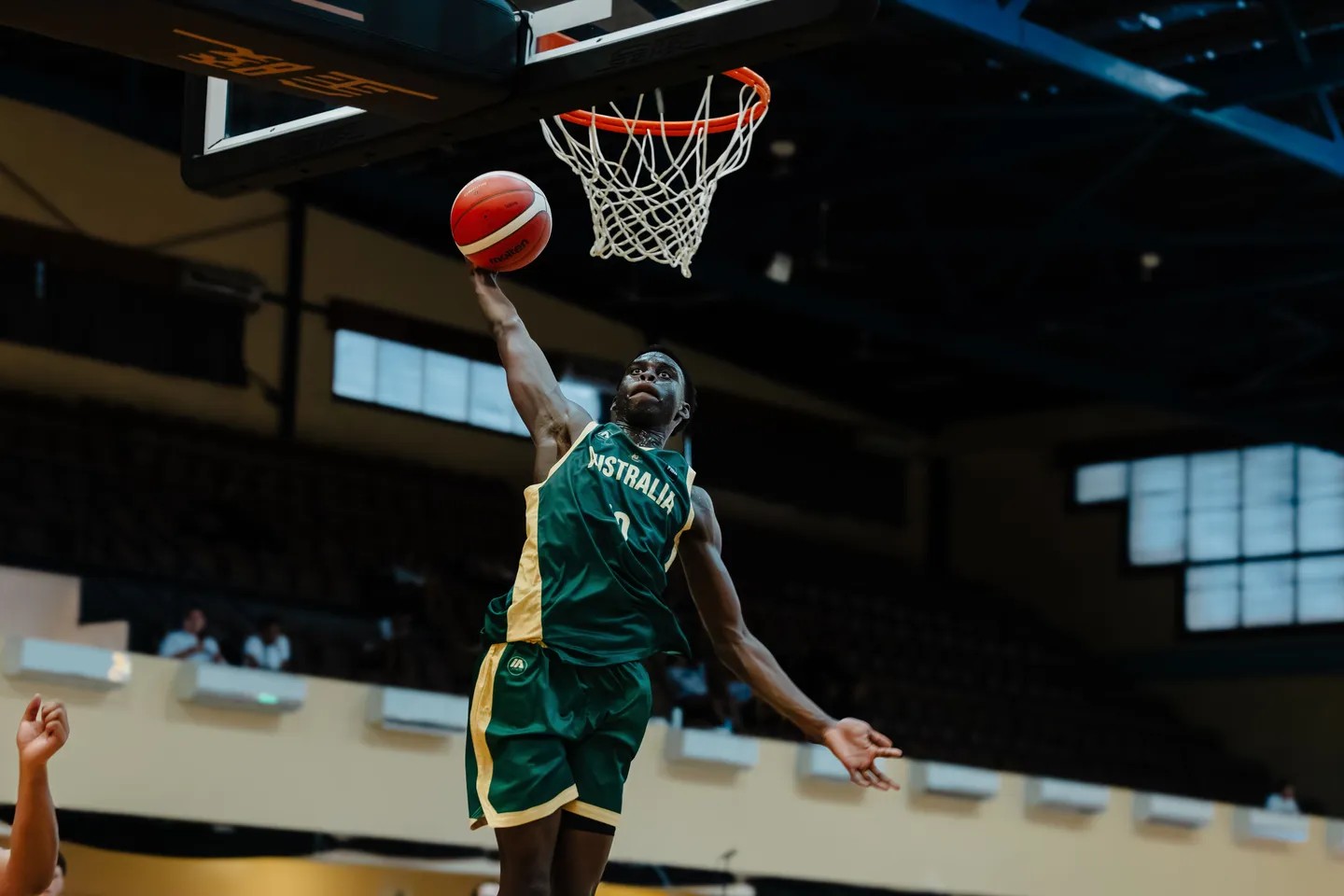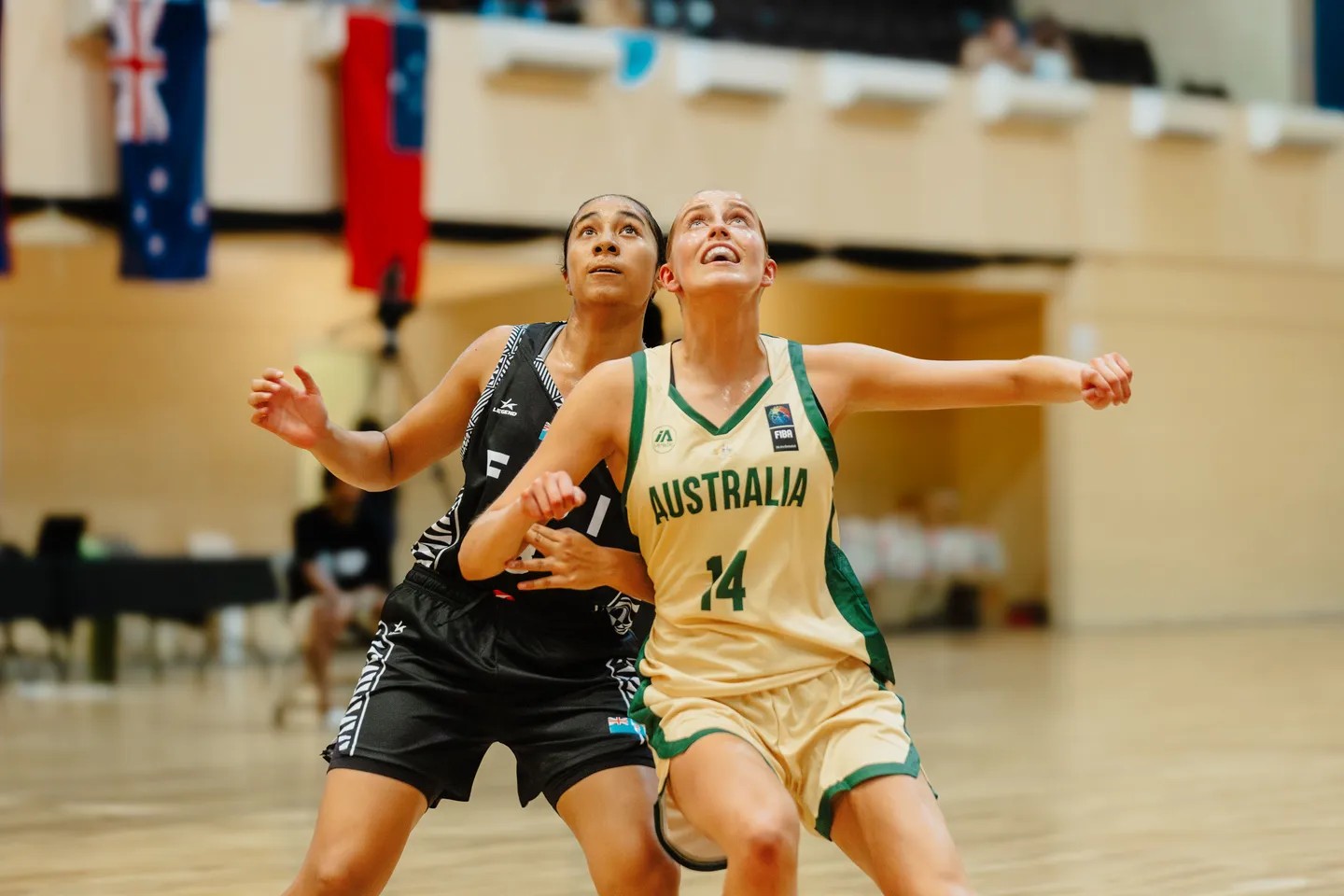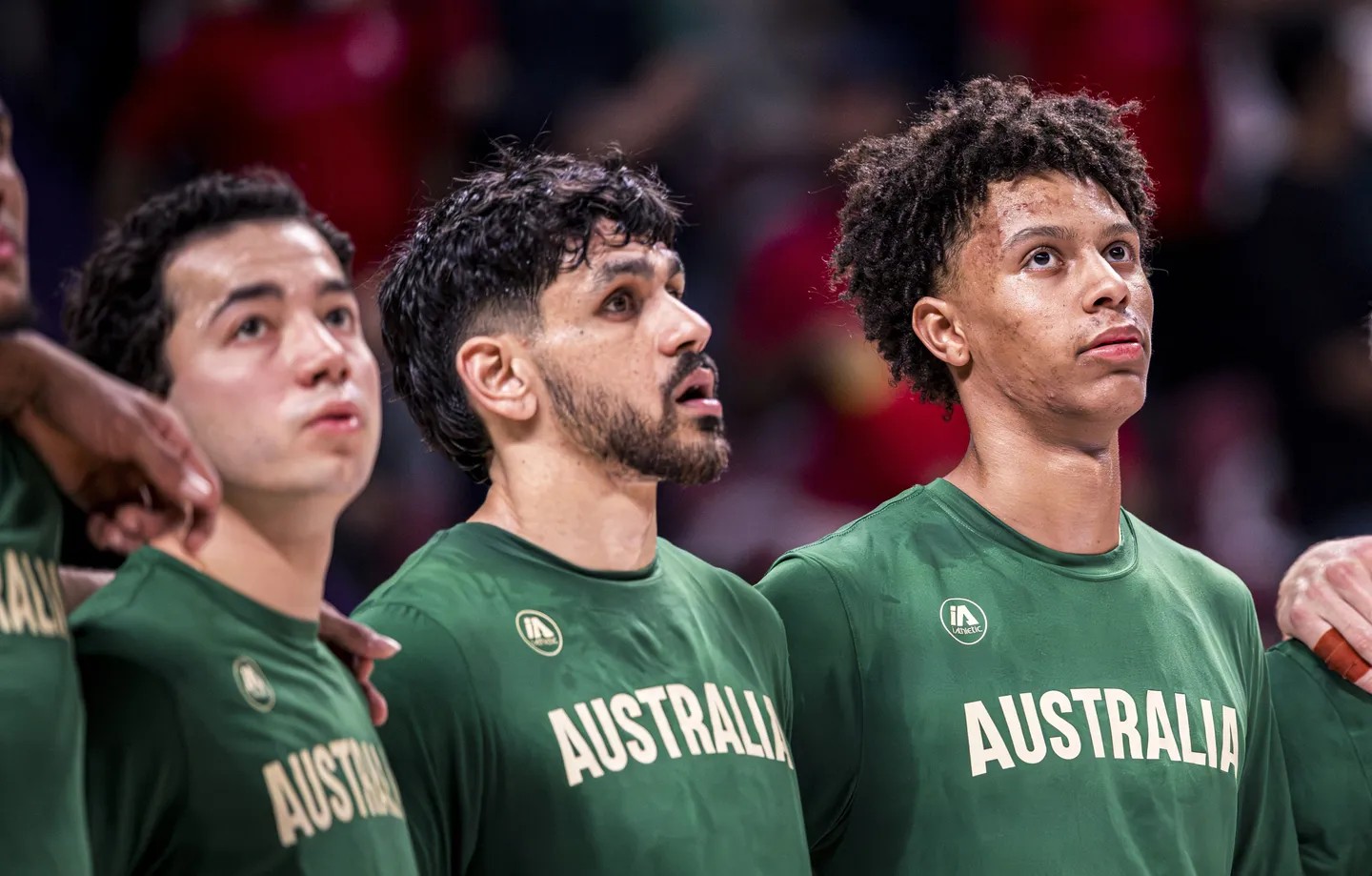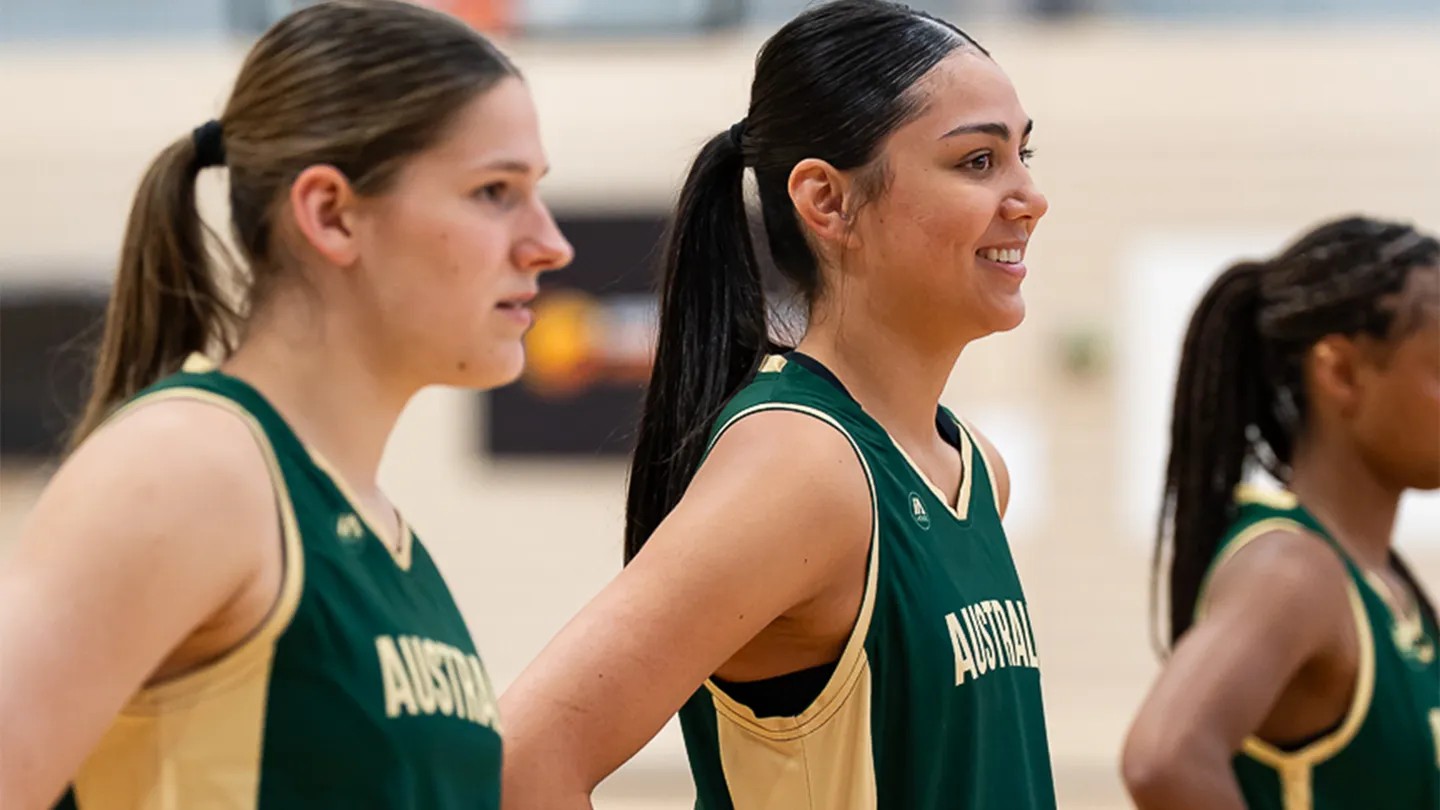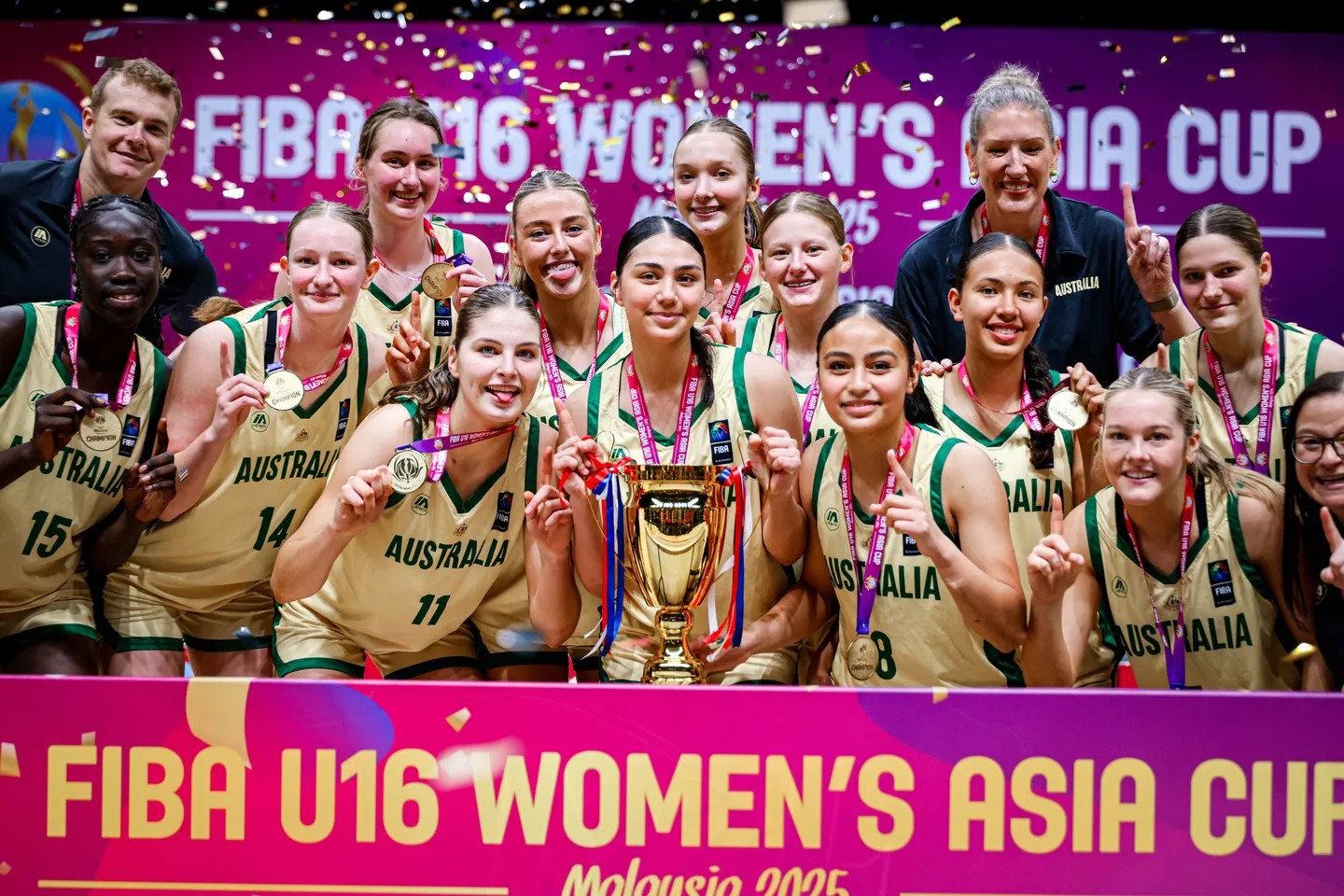WITH the dust having settled from the FIBA Women’s Asia Cup in 2021, it is time to take a look back on how each team performed throughout the tournament. Of the eight teams, the top three certainly separated themselves from the remainder of the pack, with one team even unable to register a win throughout their time in Amman, Jordan. The eventual champions were on the other end of the scale, and while they didn’t record some of the bigger margins we saw later in the week, they did not lose a single game on their way to an impressive championship.
Eighth place:
India
Zero wins and four losses
India will be heading back home disappointed with their efforts, unable to claim a victory from their four matches. They struggled to generate any offence and opposition teams were able to do as they please, with the Indian team ineffectual at halting offensive flow from their opponents. Their first loss came at a whopping 90-point margin, with Japan delivering their strongest performance in the first match. India were unable to stop Japan’s offence, a recurring pattern throughout their campaign.
Their second match saw much more of the same, albeit on a smaller scale. They ended up falling to Korea to the tune of 38 points, and while they improved by a considerable margin on the offensive end, they still ended up conceding over 100 points. Every team that scored triple digits in a match ended up winning that contest, so this became an issue for the Indian side. They faced New Zealand in their third clash and fell back to their old ways, losing the match 109-49 in a disappointing display. Their final match came in the form of a classification match against the Philippines to determine the seventh and eighth placed teams overall. This was by far India’s strongest outing, and while they ended up losing the match by four points, they delivered their most complete performance of the week. If not for a second-half collapse, they would have notched their first win. Also coming from this game was a fantastic all-around performance from Shireen Vijay Limaye, who recorded a double-double her final game of the tournament.
Overall, India’s campaign was underwhelming and they will be heading back with plenty to improve by the time their next opportunity arises.
Seventh place:
Philippines
One win and three losses
The Philippines delivered a dissatisfying campaign for their fans, winning just the one game in the classification match at the end of their journey. Their week began with a crushing 91-point loss to eventual runners-up China, who were able to storm away on the offensive end. While the Philippines still poured in 52 points of their own, they gave up a massive 143 points to their opponents, which proved to be double the total of a winning score in some matches from this tournament. Their second clash saw them take on a fired up Australian team, who were able to deliver the Philippines the same pain inflicted by China, taking home a brutal 64-point smashing. Suddenly it became clear that the Philippines were not performing well enough on the defensive end, with the Opals able to produce 120 points on their way to the win
Following another defeat (this time to the Chinese Taipei), it was obvious the Philippines would not qualify for next year’s World Cup. They faced off against India for seventh place, and were able to conjure an impressive second-half turnaround to claim a four-point win, thanks to the all-around game of Afril Bernadino, who finished wit nine points, 11 rebounds, seven assists, four steals and four blocks.
The Philippines showed their capability to produce a winning score, but their tendency to give up massive totals to the opposition unfortunately kept them from progressing any further.
Sixth place:
Chinese Taipei
One win and four losses
The Chinese Taipei found themselves with mixed performances throughout their time in the tournament, culminating in a disappointing final record. They looked promising in their opening outing against the higher-ranked Australian team. While they lost this game, it was only by a slim margin in the end and they looked like they could prove an unexpected threat throughout the week. These hopes took a hit when the side suffered a humiliating 74-point loss at the hands of a China team who were simply hungrier. China came to Jordan to win, and the Chinese Taipei could not stem the offensive flow of their opponents, conceding 124 points.
The team was able to bounce back with a dominant 41 point win over the Philippines, which proved enough to make the upcoming qualification finals. In this match they faced off against Korea, where they were defeated by just six points, after a final quarter meltdown. The team could not advance any further, and faced off against New Zealand where they were once again bested to the tune of 15 points, cementing their sixth-place finish.
The Chinese Taipei showed promise at times throughout the tournament, but final-quarter fadeouts proved to be their biggest enemy in their losses, and the team would be dissatisfied with a sixth-placed finish.
Fifth place:
New Zealand
Two wins and three losses
The New Zealand side delivered some strong outings at times throughout the week, but unfortunately matched these with equally underwhelming outings in between. An opening night loss to Korea saw the team kick off proceedings in disappointing fashion, going down by 17 points in a match where they were never able to claim the lead. They faced Japan the following night and while they were brave against the eventual champions, they could not steal an upset, falling by 12 points.
They faced a weaker opponent on the third night of games, and took full advantage of this as they crushed India to the tune of 60 points, in a performance that saw the New Zealand side regain their confidence heading into the tail end of the group phase. Their qualification final matchup proved tough, with the side falling to their Australian neighbours by 11 points. Their win over India was still enough to see them through to the fifth/sixth place classification match, where they triumphed over the Chinese Taipei.
While their record may not reflect this, the New Zealand side produced a decent performance throughout the week. While they did not advance as far as they hoped, they were never blown out and proved to be a class above the teams who finished lower.
Fourth place:
Korea
Three wins and three losses
It is safe to say the Korean performed admirably throughout their matches, and were unlucky to miss out on a podium finish against some quality opposition. They opened their tournament with a strong 17-point win over New Zealand, in a performance that sent a message to the rest of the competition, given New Zealand were expected to perform strongly. They backed up this performance the following night, with a towering win over India with a final margin of 38 points. By this stage, it was clear that Korea had come to play, and the remaining teams would have been fully aware of this, especially their upcoming opponents.
In a blockbuster clash, they fell by just five points to the powerhouse Japanese side, and while this was a great opportunity to announce themselves to the FIBA world, they would not have been too disheartened by the loss as it showed they can match it with the very best. They moved on to the qualification semi-finals, where they escaped with a six point win over the Chinese Taipei, and suddenly they were just two wins away from claiming the title in unlikely circumstances. Unfortunately, these hopes were crushed by a determined China team, who stormed away with a 24-point win in the semi-final. Korea then faced off against Australia for a bronze medal, but fell 30 points short.
Overall, Korea delivered a tournament that may have surprised many, and most importantly their fourth place finish means they have secured a place in next year’s World Cup.
Third place:
Australia
Four wins and two losses
It proved to be a mixed result for the Australian side who were able to secure a podium finish. While they grabbed a bronze medal and a spot in next year’s games, they came painfully close to a spot in the grand final. They opened their account with a win over the Chinese Taipei, and while it came with a final margin of just 11 points, it proved enough to push them up the ladder of group B. A 64-point blowout of the Philippines on night two gave the Opals a confidence boost heading into the final group phase match, but they faced their toughest opponent yet.
The Aussies suffered their first loss of the week, as China delivered a powerful performance to defeat the Opals by 18 points. Suddenly the Aussies had been brought back down to earth heading into the qualification final against New Zealand. They bounced back to win this match by 11 points, with this win setting up a blockbuster semi-final clash against the dominant Japan side. Thus match proved to be a thriller, with the Aussies falling just two points short of a grand final berth, a result that broke the hearts of all Australians watching. They composed themselves and were able to claim a third place finish with a 30 point victory over Korea in the classification match.
The Aussies will be disappointed they lost the semi-final match to the eventual champions (especially in such close fashion), but were well-led by captain Sami Whitcomb, and will likely prove a problem for opponents in 2022.
Second place:
China
Four wins and one loss
China came out with a hunger to win in this year’s tournament, besting most of the sides they faced with their determination and offensive dominance for extended periods of their matches. They tore apart the Philippines by 91 points to open their week, and this style of play continued as their week progressed. A 74-point triumph over the Chinese Taipei came the following night, and suddenly China became accustomed to not only beating their opponents, but hurting their confidence in the process. This was a dominant Chinese side, and looked as if they were going to take some beating.
They faced their toughest opponent yet in the Opals, but were still able to quell this challenge and walk away from their final group phase match with an 18-point win to finish this portion of the tournament undefeated. This also earnt them an extra night off, which allowed them to rest and recover before their upcoming semi-final clash with Korea. This extra rest time clearly worked, with China able to dismiss their opponents to the tune of 24 points to advance to the grand final, with a chance to claim their first title in 10 years. They unfortunately fell to a Japanese team with plenty of experience in these situations.
While they could not claim a gold medal, China can still be proud of their efforts in this tournament. They took great steps forward, and will be one of the competition heavyweights in the 2022 World Cup.
First place:
Japan
Five wins and zero losses
It was a game of experience for this Japanese team, who used all of their big-game knowledge to their advantage throughout the week to grab their fifth title in a row. They began their week with a whopping 90-point win over India, but this was expected throughout the competition, given Japan’s success over recent years. Their second match saw Japan fend off a determined New Zealand side to record an important 12-point win. Hindsight has shown us the top placed side of each group strongly benefited from the extra night’s rest.
They were given an almighty scare by Korea, who pushed Japan to its limits, but the reigning champions proved too classy, and were still able to grab a five-point victory. They used their extra night off to study their upcoming opponents and regather their strength ahead of the semi-final. They took on the Australians, and this match was a prime example of the importance of experience in these big games. Japan delivered in crunch time to claim a narrow two-point victory. This set up a mouth-watering grand final match-up against China, and while their opponents had looked the strongest side for most of the tournament, Japan were still able to make big fourth-quarter plays and claim gold with a five-point win.
It was another ideal tournament from this experienced championship side, but they won’t be satisfied, so expect big things again from them in next year’s games.
Photo: FIBA website




















